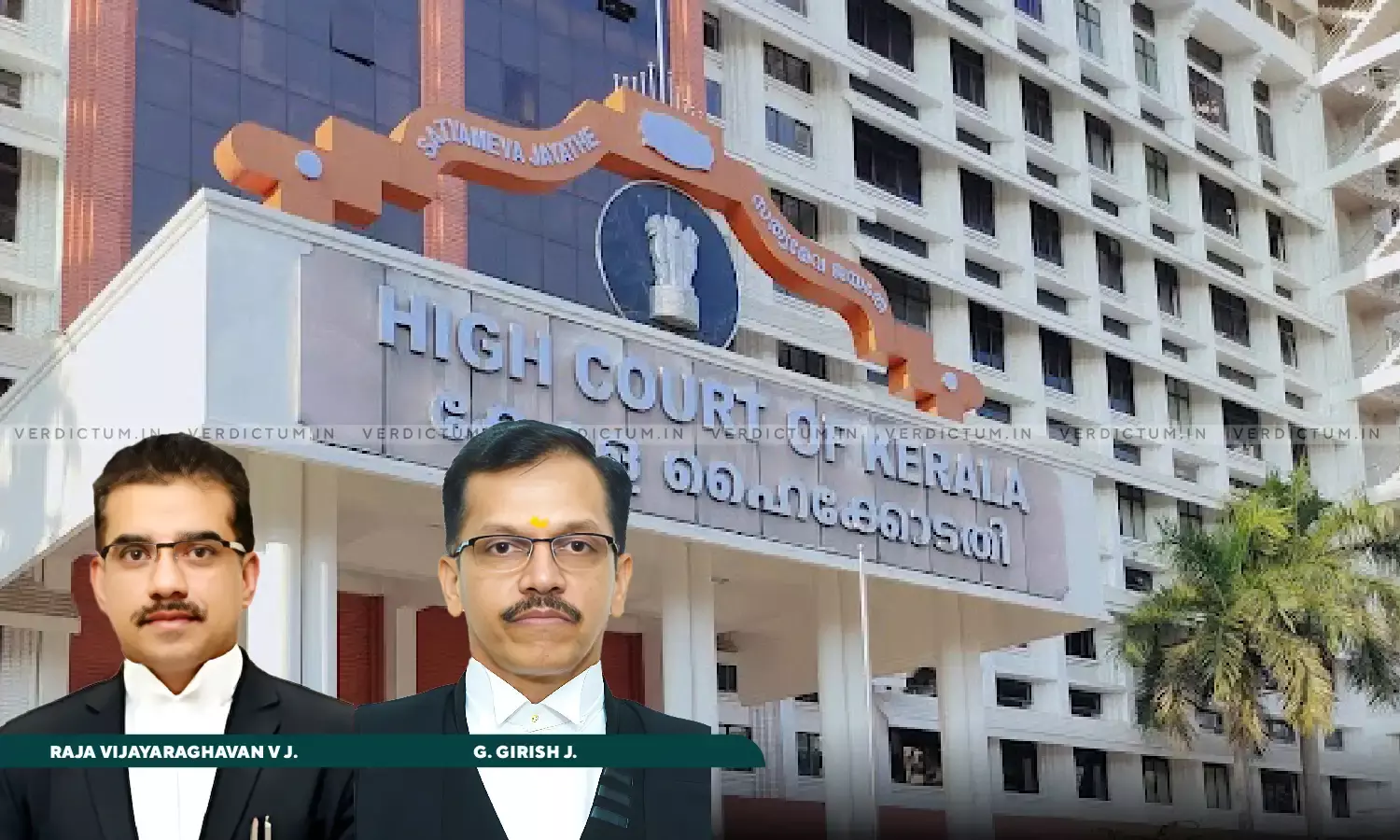Prosecution Failed To Establish That RDF Is Declared Unlawful Under UAPA; Status Of ‘Terrorist Organization’ Lacking: Kerala HC Acquits Five Men
The Kerala High Court acquitted five men who were found guilty by the Special Court for the offences under the Unlawful Activities (Prevention) Act, 1967 (UAPA).
The accused men were allegedly activists of RDF (Revolutionary Democratic Front), said to be a frontal organisation of CPI (Maoist) and were accused of organising a meeting at Mavelikkara for the formation and commencement of activities of the students’ wing of the said organization.
A Division Bench of Justice Raja Vijayaraghavan V. and Justice G. Girish observed, “As far as the present case is concerned, the prosecution has not brought on record any document to show that RDF is an association declared unlawful by a notification issued under Section 3(1) of UAPA, which became effective under Section 3(3) of that Act. Therefore, the primary requirement for invoking Section 10 of UAPA against the appellants is seen lacking in this case. Needless to say that the Trial Court went wrong in convicting and sentencing the appellants for the commission of offence under Section 10 of UAPA.”
The Bench said that the prosecution failed to establish that RDF is a front organisation of CPI (Maoist) and thus the essential requirement of Sections 38 and 39 of UAPA, which is the status of the organization as ‘terrorist organization’, is lacking in the case.
Advocates C.K. Sajeev and K.S. Madhusoodanan represented the appellants while ASGI A.R.L. Sundhareshan represented the respondent.
In this case, the appellants were accused of organizing a meeting in a lodge room at Mavelikkara in 2012 for the formation and commencement of activities of the students’ wing of the RDF organisation. As per the prosecution case, the objective for the formation of the students’ organisation of RDF in the said meeting was for questioning and disrupting the sovereignty and territorial integrity of India and to cause disaffection towards the Government of India.
The Special Court, NIA (National Investigation Agency) had found all the appellants guilty of commission of the offences under Sections 10, 13, 38, and 39 of UAPA and convicted them. They were sentenced to undergo rigorous imprisonment for one year and fine Rs. 2,000/- under Section 10, rigorous imprisonment for three years and fine Rs. 3,000/- under Section 13, rigorous imprisonment for three years under Section 38, and rigorous imprisonment for three years under Section 39 of UAPA. Being aggrieved by this, they preferred appeals before the High Court.
The High Court in the above context of the case, noted, “Nor could the prosecution show that any of the office bearers of RDF were earlier working in CPI (Maoist), and that, after the banning of CPI (Maoist), they have surfaced with a new name. The oral evidence of PW1, which is found tainted for the reasons stated in paragraph nos.14 and 15 herein above, also could not improve the case of the prosecution in this regard. In the above circumstances, it is not possible to accept the argument of the prosecution that RDF is the front organization of CPI (Maoist) as stated in the Gazette publications of Telangana and Orissa. Accordingly, we hold that the prosecution has failed to establish that the RDF is a front organization of CPI (Maoist).”
The Court said that the lack of clarity on this matter could be said to have misled the appellants about the exact accusation to which they were answerable.
“As the prosecution has failed to bring out anything to show that the RDF has been declared unlawful under Section 3 of UAPA, the evidence regarding the participation of the appellants in the meeting at Mavelikkara is not enough to bring home the offence under Section 13(2) of UAPA. Thus, it is not possible to say that the offence under Section 13 of UAPA is attracted in this case”, it added.
The Court further elucidated that the term ‘terrorist organisation’ employed in Sections 38 and 39 of UAPA, is defined under Section 3(m) of the said Act, as an organisation listed in the First Schedule, or an organisation operating under the same name as an organisation so listed and that, RDF is not enlisted as a terrorist organization in the First Schedule to UAPA.
“… it is not possible to say that the offence under Sections 38 and 39 of the UAPA are established by the evidence adduced in this case. … The prosecution failed to establish the commission of offences charged against the appellants”, it concluded.
Accordingly, the High Court set aside the impugned judgment and acquitted the appellants.
Cause Title- Rajesh Madhavan & Ors. v. Union of India (Neutral Citation: 2024:KER:70802)
Appearance:
Appellants: Advocates C.K. Sajeev, Vincent Joseph, K.S. Madhusoodanan, S. Jessin, K.S. Mizver, P.K. Rakesh Kumar, Thushar Nirmal Sarathy, and M.M. Vinod Kumar.
Respondent: ASGI A.R.L. Sundhareshan and Special Public Prosecutor (SPP) M. Ajay.




